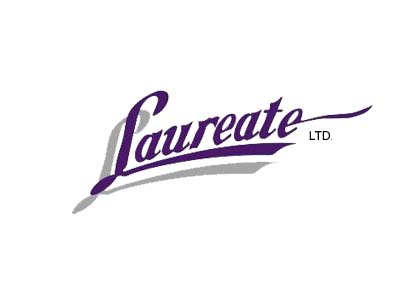When it comes to renting out a residential property in Denver, crafting a robust lease agreement is not just advisable—it's essential.
A well-constructed rental agreement helps protect your investment and sets the groundwork for a positive landlord-tenant relationship.
With the real estate market booming, landlords must be adept at creating documents that ensure clarity and compliance with local laws.
This article will provide some of the best practices for Denver landlords on creating effective lease agreements that benefit both parties.
Understanding Lease Agreements
What is a Lease Agreement?
A lease agreement is a legally binding contract between a landlord and prospective tenants that outlines the terms and conditions of renting a residential property.
This document serves as a blueprint for the rental arrangement, covering key elements such as the lease term, monthly rent, security deposit, and maintenance responsibilities.
By clearly defining these aspects, a lease agreement helps prevent misunderstandings and disputes.
Importance of a Lease Agreement
For both landlords and tenants, a lease agreement provides clarity and peace of mind. It serves as a legally binding contract that outlines each party's rights and responsibilities, ensuring that both sides are aware of their obligations.
This understanding can prevent potential conflicts, making the landlord-tenant relationship smoother and more transparent.
Key Elements of a Lease Agreement
When creating a lease agreement, here are some key elements that you should include:
Parties to the Agreement: Ensure the lease includes the full legal names and addresses of all parties involved. This list might also include renters' registration details like a Passport, Social Security number, or Driver’s License if available.
Property Description" A detailed description of the property is crucial. Include its physical location, address, street, unit number, and any specific rules or regulations. This ensures that both parties have a clear understanding of what the leased property entails.
Rent Amount and Due Date: Clearly indicate the monthly rent amount and the due date for payments. Specify the payment methods accepted, such as checks, money orders, or cash. It's also wise to describe the consequences of late payment and returned checks, helping to set expectations from the start.
Utilities and Maintenance Responsibilities: Clarifying the obligations for utilities and maintenance can save a lot of headaches down the line. Specify which party is responsible for what aspects of property maintenance and repairs. This transparency helps avoid future conflicts and misunderstandings.
Tenant’s Security Deposit: Requesting a security deposit, often equivalent to a month’s rent, is a common practice to protect against potential losses. Define the amount and ensure it meets the specific requirements of Colorado's landlord-tenant laws.
Non-Refundable Fees: Specify any non-refundable fees, such as pet deposits or application fees, within the lease. Compliance with Colorado landlord-tenant laws regarding these fees is essential to avoid legal complications. Ensuring tenants are informed about these fees upfront can prevent disputes later.
Best Practices in Creating Lease Agreements
Embarking on creating lease agreements can be challenging and rewarding at the same time. To create a holistic lease agreement, there are some strategies that you can utilize.
Use a Rental Agreement Template
Begin with a rental agreement template to create a comprehensive lease agreement that reflects the specific needs of your rental properties, ensuring all rental terms are clear for both the tenant and property owner.
Customize Templates for Specific Property Needs
Tailor the written agreement to include specific details about the rental unit, such as parking arrangements or shared amenities, and require prior written consent for modifications to maintain clarity between both parties.
Consult with Legal Professionals
Engage legal professionals to review your lease agreements, ensuring compliance with laws and potentially avoiding unnecessary attorney fees or court costs if tenant defaults occur.
Review and Update the Lease Agreement
Regularly update the lease to reflect any rent increases, changes in property conditions, or new liability insurance requirements to keep both the tenant and property owner informed and compliant.
Clearly Define Pet Policies
If renting property to tenants with pets, specify pet policies, including deposits or fees, and inform tenants of their responsibilities to prevent misunderstandings.
Set Clear Communication Channels
Establish clear methods for tenant inquiries and maintenance and repair requests, providing a landlord's address or contact information for timely responses.
Detail Maintenance and Repair Responsibilities
Clearly outline which party, either the landlord or tenant, is responsible for repair requests to prevent disputes and ensure the rental unit is well-maintained.
Outline Tenant Default Procedures
Include procedures for tenant defaults, such as late fees for unpaid rent and the process for collecting rent, to set expectations and provide a clear course of action.
Screen Potential Tenants Thoroughly
Use rental applications and rental references to screen potential tenants, ensuring they meet your criteria and are likely to pay rent on time and adhere to rental terms.
Specify Notice Periods for Lease Changes
Clearly state the notice period required for changes such as a rent increase or if the tenant vacates, ensuring both parties are prepared for adjustments.
Types of Lease Agreements
Fixed-term Lease Agreement: A fixed-term lease provides a specific start and end date, offering stability for both landlords and tenants. This type of lease can be beneficial for landlords seeking a steady rental income for a defined period. It's ideal for those who prefer to avoid frequent tenant turnover.
Month-to-Month Lease Agreement: For landlords seeking flexibility, a month-to-month lease agreement allows either party to terminate the lease with reasonable notice. This arrangement can be advantageous for adjusting rent or making property changes without long-term commitments.
Creating a Lease Agreement
Simplifying the process is easy with lease agreement templates or online services. Ensure the chosen sample lease agreement complies with Colorado landlord-tenant laws and regulations, providing a solid foundation for your lease.
These tools can save time and reduce the potential for errors.
Incorporate essential clauses covering rent payment terms, security deposit, and maintenance responsibilities. Consider additional clauses for subletting, assignment, and termination to address various scenarios.
These clauses ensure clarity and coverage for different situations.
Rights and Responsibilities
Landlord’s Responsibilities: Landlords have specific responsibilities to maintain a habitable living environment, provide necessary repairs, and respect tenants’ rights. Understanding and fulfilling these duties is essential for a successful rental experience.
Tenant’s Responsibilities: Tenants are responsible for paying rent on time, maintaining the property, and complying with lease terms. Clear communication of these responsibilities helps prevent misunderstandings and fosters a positive relationship.
Dispute Resolution
Small Claims Court
In case of disputes, the Small Claims Court can be a useful avenue for resolution. Proper documentation and preparation increase the chances of a successful outcome. Understanding this process is essential for protecting your interests.
Rental Property Management
Rental property management involves crafting comprehensive lease agreements that serve as the foundation for a successful landlord-tenant relationship.
Denver landlords should focus on incorporating clear terms and conditions to ensure mutual understanding and prevent disputes.
It is crucial to adhere to local legal requirements and regulations, which helps in establishing trust and transparency. By prioritizing these best practices, landlords can effectively manage their properties and maintain harmonious interactions with tenants.
Learn the Best Practices When Creating Lease Agreements
Crafting effective rental agreements is vital for Denver landlords seeking to protect their investments and establish positive landlord-tenant relationships.
For those seeking further assistance, you can consult Laureate LTD. We provide valuable insights and guidance to achieve a smooth and rewarding rental experience!



